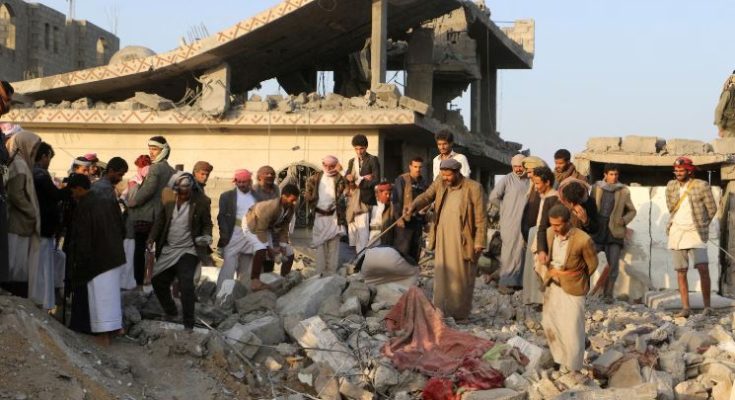The Iranian-backed militants have proved resilient to a months-long military campaign, spanning the Trump and Biden administrations, to halt the group’s attacks.
The U.S. military will continue attacks on Houthi militants in Yemen, officials said Monday, as the Trump administration launches a new, open-ended attempt to prevent the group’s assaults on commercial shipping or U.S. and allied targets.
The Pentagon said U.S. forces had struck more than 30 Houthi targets since Saturday, including command-and-control and training sites, drone infrastructure, and weapons production and storage facilities, in what officials have said would be an intensified campaign against the militants.
“Today, the operation continues, and it will continue in the coming days until we achieve the president’s objectives,” Lt. Gen. Alexus Grynkewich, a senior official on the Joint Staff, told reporters at the Pentagon.
It was not immediately clear whether the Trump administration’s operation will prove more successful in weakening the Iranian-backed Houthis — who have controlled a vast swath of Yemen for more than a decade — than the Biden administration did in its air campaign against the group. The group began attacking commercial ships off Yemen in late 2023 in opposition to Israel’s war in the Gaza Strip against Hamas, another militant faction aided by Iran, and later broadened its campaign to include Israeli and U.S. targets.
Despite a year of airstrikes under President Joe Biden, the Houthis have managed to continue manufacturing weapons and conducting attacks on ships transiting the Red Sea, posing a significant threat in a key chokepoint for global commerce. The Houthis also have launched attacks on U.S. naval positions and on Israel.
Grynkewich said this new operation differed from the Biden administration’s approach in that it has included a broader list of targets and because President Donald Trump had authorized lower-level officials to approve strikes.
“That allows us to achieve a tempo of operations where we can react to opportunities that we see on the battlefield in order to continue to put pressure on the Houthis,” he said.
While the Houthis have received significant financial and military assistance from Iran, U.S. officials have long described the militants as more independent than other Iranian-linked groups, such as Lebanon’s Hezbollah.
Trump on Monday, however, suggested the contrary and reiterated that he would hold Tehran responsible for Houthi violence.
“Every shot fired by the Houthis will be looked upon, from this point forward, as being a shot fired from the weapons and leadership of IRAN,” the president said on social media. “IRAN will be held responsible, and suffer the consequences, and those consequences will be dire!”
Pentagon spokesman Sean Parnell, also speaking to reporters at the Pentagon, declined to rule out direct military action against Iran. “We know who the enemies of this country are and the enemies of a free world are, and President Trump has put them on notice,” he said.
Trump in recent days has appealed to Iran’s supreme leader, Ayatollah Ali Khamenei, in hopes of securing an agreement to limit Tehran’s nuclear program, but the Iranians so far have declined to engage.


